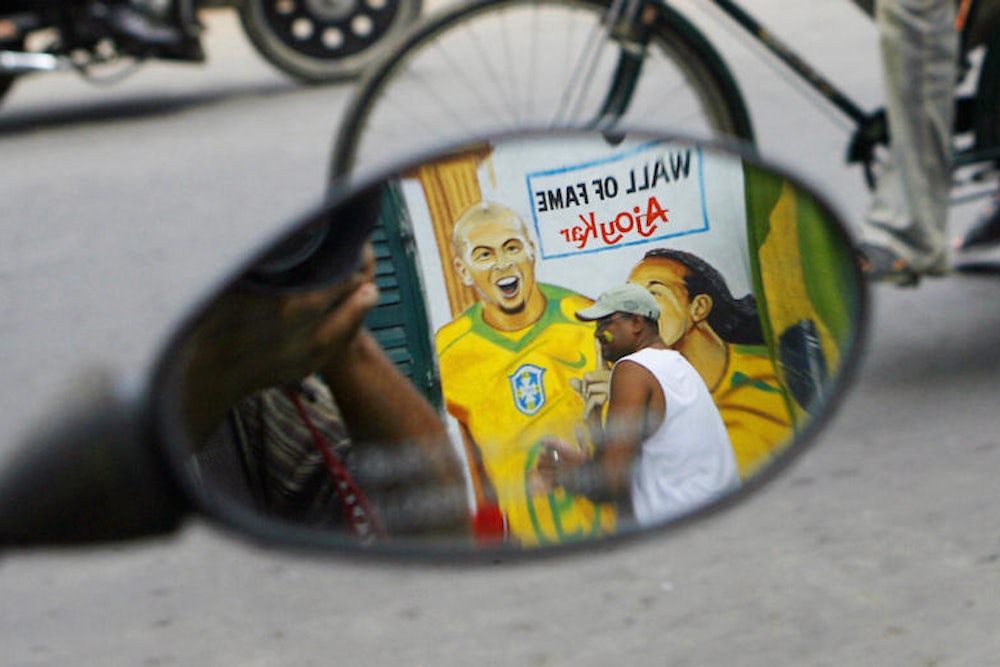Each of the matches at the World Cup is an exercise in baroque self-reflection. One gets the feeling of being trapped in a house of mirrors. Or maybe inside an image by M.C. Escher.
On the surface, the 22 players, plus their coaches, the subs, and the three refs, have the leading roles in the spectacle. They are the reason we tune in. This, after all, is the biggest stage in the world. It has an audience of billions. Not even the Pope reaches that many followers. These actors know that everything they do—every gesture, every noise—is theatrical. The key to a successful act is to be natural. Nature itself, of course, has little to do here, for we are in the realm of artifice, of pretense. When the TV camera focuses on them, the players are trained to ignore it because their task is to look like they are just themselves: casual.
The fans, on the other hand, don’t need to be casual, they don’t need to pretend. For them the theatrical aspect of the whole thing isn’t about selflessness; on the contrary, they themselves are the epitome of self-awareness, their personalities in performative drive. They know they are watching while being watched. They are eager to see their own image immortalized on the stadium’s big screen. This shot automatically makes them famous, albeit for only a few seconds. Not the 15 minutes Andy Warhol predicted we all would get in the future. Still, a few seconds on this stage is a lifetime of memories.
As for the rest of us, we are remote onlookers, maybe even sheer props. But are we truly that detached? Does our existence matter that little? Outside of the screen, where our mundane existence unravels, soccer fever is explosive. At home, in bars and restaurants, on iPhones, passion is on vibrating mode. We have come to understand that the spectacle isn’t exclusive to the stadium but that, in this reflection inside a reflection, we are but characters in a Borgesian dream. Maybe this is what Diego Velázquez’s Las Meninas is about: a painting eternally unfolding onto itself.
“Futebol is beautiful!” we proudly say, in unison (in 5,000 different languages), as the World Cup gives meaning to the word simultaneity.
